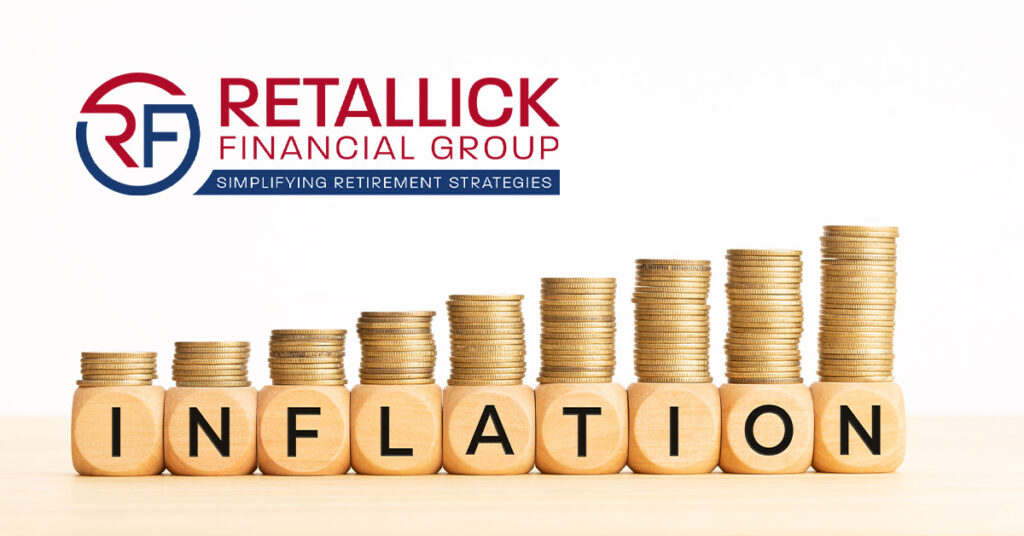President Biden has called this recent bout of inflation “transitory.” However, many people worry that it’s here to stay. So, needless to say, we’re going to have to learn to live with it. You may be wondering: What is inflation, how bad has it been recently, and is it possible to not only live with but actually benefit from inflation? Today, we’ll attempt to answer those questions.
Basically, inflation is the general rise in prices in an economy over a specific period of time. The Federal Reserve typically targets a low rate of inflation, of about 2%. But, inflation can creep up higher as a result of economic shocks.
In the 2000s, inflation rates fluctuated between 2$ and 5%. In the 2010s, it dropped down to between 0% and 2%. So, in other words, prices were remarkably stable in the recent past. However, around a year ago, inflation reached 5.4%, one of the highest rates in several years.
And, in June, inflation stood all the way at 9.1%, the highest rate in over 40 years. Obviously, this is all far above the Fed’s target zone of 2%.
What To Do About Inflation
Inflation creates more uncertainty in the economy. Higher rates of inflation tempt action by the Fed, who then raise interest rates in response. Action by the Fed can cause stock market volatility in the short run. Rising rates can also cause bonds to lose value over time. If nothing else, the threat of inflation, and increased uncertainty, is another reason to revisit how you’ve invested your money. It’s important to ensure your assets are diversified properly.
A diversified portfolio that isn’t too heavily dependent on any one type of asset is a good first step toward protecting your finances. Rest assured, there are places where you can keep some of your money where it’ll gain interest to compensate for inflation. Reach out to us to learn more about this.
While inflation reduces the value of each dollar, hurts retail customers, and can potentially hurt retirees living on fixed income, there are some benefits to it.
Make the right moves, and you can not only mitigate the effect on your money, but even leave the inflationary period in a better position.
Benefit From Inflation?
Inflation benefits holders of fixed-rate debt, such as mortgages. It encourages consumption today rather than later, and lower inflation can be a sign of a growing economy. Furthermore, there are some assets that you can purchase to hedge inflation:
Real Estate: Single-family homes financed with low, fixed-rate mortgages tend to perform well during times of high inflation. As it increases, your property is likely to appreciate in value, while the monthly service cost of your mortgage stays the same.
Value stocks: Some research has shown that value stocks tend to do better than growth stocks during periods of inflation. Value stocks are companies that have strong earnings relative to their current share price. They are known to have robust cash flows, which investors typically value when prices are rising.
Commodities: This category includes gold and other precious metals, as well as raw materials and various natural resources. As demand increases, prices rise, and the cost of production to meet that demand typically rises in lockstep. Commodities are generally seen as a “safe-haven” asset during times of uncertainty. They are unconnected to traditional investments like stocks and bonds, and tend to move in an unrelated direction.
Be Aware of Your Inflation Rate
What’s your inflation rate? Where you’re spending money can tell you a lot about how exactly you’re being impacted by inflation and where you should focus on cutting back. You can learn more about how to manage your assets smartly by contacting us. We can help you keep your portfolio balanced.


